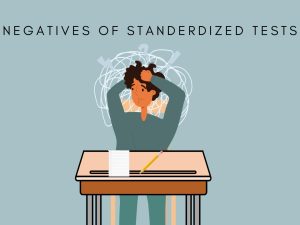Where did all the water go?
April 10, 2018
It seems as though the water around us is endless as we use it constantly. Water plays a vital part in our lives and it is hard to imagine life without it. Although water is considered a “renewable resource,” some areas of the world are, in fact, running out of water. In Cape Town, South Africa residents have run out of water due to severe drought and straining of water supplies. It is a coastal city that is populated by over four million residents. Such a high population as created one of the world’s most dramatic urban water crises and scientists warn residents that they are increasingly likely to reach “Day Zero” which will mean no more water for the community. According to National Geographic, there has been a desperate attempt to save local aqueducts and alleviate the strain residents are putting on the water supply. Officials are limiting people to only a few gallons of water a day. This will put a tremendous burden on the community, as they will have to adapt to a new, conservative way of life. The Cape Town epidemic proves that water may not be the unlimited luxury many may think. Under the right conditions, situations such as Cape Town’s can happen anywhere at any time.
At Wakefield high school, water scarcity is not an unheard of issue. Between 2007 and 2008, a serious drought plagued residents of Wake County. They were forced to conserve water and monitor their usage to help replenish water sources. Since then, water levels have returned back to normal, but it still remains important to understand water conservation.
Wakefield science teacher Melissa Schug has worked to educate students about the water crisis.
“In many countries you turn on your water and are able to get it instantly,” Schug said. “ l.”
Many students have admitted to not being the most environmentally conscious when it came to water usage. Junior Morgan Fightmaster admits to not always doing her part in the battle to conserve water resources.
“I like to take long showers sometimes,” Fightmaster said. “It’s just not something I think about all the time and I definitely think I should considerate it more when going about my everyday life.”
There are many changes one can make in their lifestyle to use less water. Senior Bailey Hicks has different tricks on how she saves water in her own life.
“In my own house, we try to brush our teeth in the shower or turn off the water when we aren’t using it,” Hicks said. “People always throw away half full water bottles that could be used for other things instead of wasting it.”
In the moment it doesn’t feel like we are using that much water. The average American uses about 80-100 gallons of water a day. Multiply that by the millions of Americans and that is a whole lot of water that is going to waste. Senior Eliah Tekotte has learned the impact excessive water usage has on the planet.
“I remember in my APES [AP Environmental] class we did a project on how much water we all use and people were reporting 15-20 min showers,” Tekotte said. “I just think that’s crazy.”
Scientists agree that the amount of water we use and pollute will lead to more water shortages in communities in the future. According to research done by NASA, by 2030 half of the world’s population could be living in high water-stressed places. The question remains if people are willing to change their ways before it’s too late.
“I think it’s really going to take a wake up call to get people to want to change their habits,” Schug said. “I hope that by people taking my class maybe they will be more conscious of the water they use or that they will influence others to make a change in their lifestyle.”








